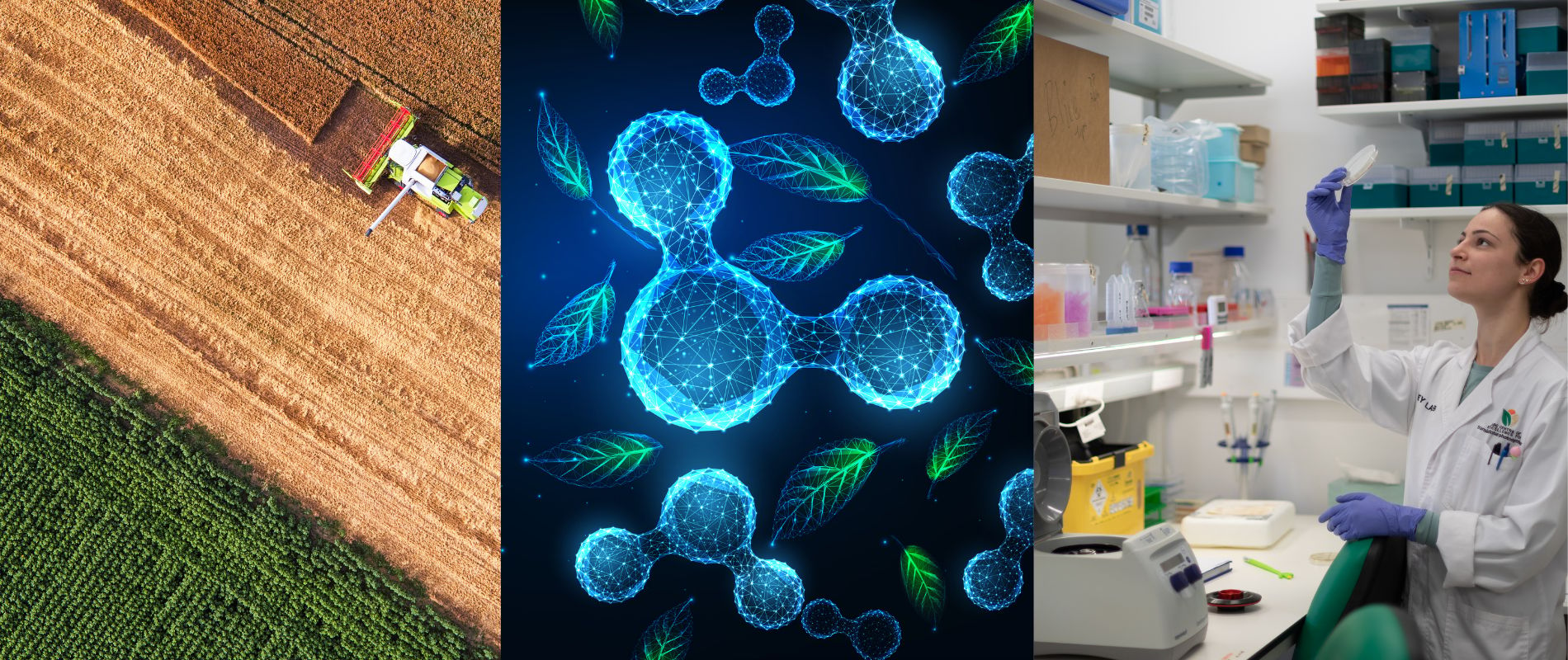A message from Prof Owen Atkin, CEAT Director
—-
In the second half of last century, the Green Revolution resulted in large increases in agricultural output, ensuring that food production largely kept pace with a rising global population. However, the benefits of that revolution have stagnated, with global agricultural production having plateaued at 0.5-1.0% per annum, well below the 2-3% needed to meet the demands of a rising global population, predicted to reach 9.7 billion in 2050. By 2050, the world will need to dramatically increase agricultural output to feed its growing population. New agricultural R&D approaches are likely to be needed. This includes greatly accelerating genetic improvement of crops to improve yield potential and the resilience of crops to climate challenges such as drought.
In the context of the above that it was fantastic to hear that funding has been approved for a new research centre targeting transformational improvements in crop production. Led by Professor Barry Pogson and based at the ANU, the $10M Australian Research Council (ARC) Training Centre for Accelerated Future Crop Development will train a new generation of researchers in the advanced technologies needed to increase crop production in variable environments. A key aspect of the Centre will be the focus on responsible innovation and ensuring that there is consideration of the social impacts, benefits and risks of the new technologies. The Centre will bring together partners from the ANU (Including researchers from the ANU Centre for Public Awareness of Science and Research School of Biology), University of Adelaide, CSIRO, NSW Department of Primary Industries, peak bodies and companies. CEAT will also contribute to the Centre on a range of fronts, particularly in areas that increase student/researcher interactions with industry.
Finding ways to improve yield potentials and climate resilience of crops was also front of mind when representatives of the ANU and CSIRO last week attended a CEAT-facilitated workshop to explore ways of increasing collaboration between the two institutions. While ANU and CSIRO have always collaborated – for example, in using research on carbon isotope composition to identify drought resistant varieties of wheat such as Drysdale – there remains untapped potential for the two organisations to work together on some of the most complex challenges facing the agricultural sector. Key to the success of future collaborations will be ensuring that we work on game-changing, industry-relevant projects that cannot be done alone by each individual institution. I look forward to continuing to work with the Director of CSIRO Agriculture and Food, Dr Michiel van Lookeren Campagne and other CSIRO colleagues to build collaborative industry-relevant projects of national and international significance.
To help harness the capacity of the ANU-CSIRO Precinct to address industry challenges, it is important that we understand the challenges facing the agricultural sector, and where there are the best opportunities for using the research capacity of the Precinct to address those challenges. With that in mind, Martin Amidy, Rachael Rodney-Harris and others from the CEAT team have recently commenced a scoping exercise to map out areas where there is an external (industry) need for new R&D. Starting with a domestic approach that focuses on the areas identified by the Rural Research and Development Corporations (RDCs), CEAT is working towards identifying high-level cross-cutting themes that occur across the RDCs. The next step will then be to explore where there are opportunities for ANU and CSIRO to work with industry to develop solutions to those challenges.
Finally, I wanted to highlight a feature of the ANU community that many of you may not be aware of. Over the past year, the ANU has had to find ways of quickly adjusting to the substantial and negative budgetary impacts of COVID-19. A loss of student income – primarily from international students – means that the University has had to generate savings while not reducing its ability to teach the next generation of students and conduct research that helps transform society. In response to this unique challenge, several plant science researchers in the Research School of Biology offered to take early ‘retirement’. I use quotation marks because in most cases, these researchers have offered to keep teaching – at no cost to the ANU – for the foreseeable future, and to continue leading their world-leading research. In doing so, they have demonstrated a level of commitment and generosity that is rare, if not unique. It demonstrates how much they care about the University community, and the projects they lead. It makes me proud to be one of their colleagues.
And as always, make sure you read the articles in this month’s newsletter.
Thank you.
Owen Atkin, Director, CEAT.
